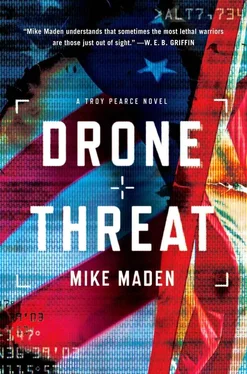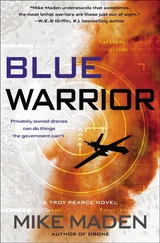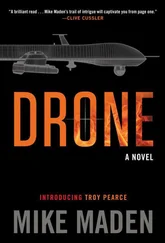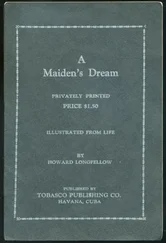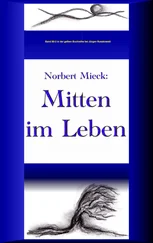“That really narrows things down,” Chandler said.
“Then why no ransom note? Why the demand to raise the black flag? Why claim to be ISIS?” Garza asked. “And how or why would the Russians be connected to it?”
Pearce ran his hand through his hair, a nervous habit. “I don’t know. I’m not convinced I believe anything I’m even saying. I’m verbally processing as much as anything. What I do know is that going to war is a nightmare. Many will die on both sides, and they’ll die for no good reason if we get this wrong.”
“There’s always the flag option,” Peguero said.
“I’m not raising that godforsaken flag, Julissa. I thought I made that perfectly clear,” Lane said.
“Am I free to speak my mind? Or is this just an exercise in machismo groupthink?”
Lane motioned with his hand. “Go ahead, please.”
“It’s just a flag. A piece of silk with ink on it. It’s all these flags and chest-beating rants that cause all the problems in the world. I say put your ego aside and raise the flag and see if that solves the problem. If it does, you’ve saved thousands of lives — maybe millions — and avoided a cataclysmic assault on our country.”
“He’ll be impeached the second he raises that flag,” Chandler said. “And we know ISIS doesn’t keep its word.”
“Just a flag?” Garza said. His eyes were daggers. “Flags mean something, lady.” He pointed at the American flag standing on a pole in the corner of the room. “I had good friends who died for that flag. Hundreds of thousands of Americans have been killed and wounded for that flag. I’ll be damned if I’ll stand by and watch that flag get lowered from the top of this building and replaced with that filthy do-rag.”
Peguero remained unflustered. “Mr. President, there will be blood on your hands if you decide to launch a war — American blood as well as the blood of innocent civilians. History will judge you harshly if it turns out you could have prevented all of that bloodshed if you would’ve set aside your ego and raised that meaningless piece of silk.”
Eaton shook her head. “You raise that flag and a billion Muslims will be dancing in the streets before sunset, including Muslims in this country. ISIS’s reputation will soar. They’ll double their recruitment in twenty-four hours. They’ll have ten times as many fighters within the week. They’ll all be smelling blood and mocking us in every mosque and madrassa from Mecca to Detroit.”
Lane nodded. He stood and stepped over to the box containing the black-and-white ISIS flag. He picked it up and examined it closely, thinking.
Pearce felt his stomach sicken. Was Lane wavering?
Lane held it up for the rest of the room to see.
“I greatly appreciate your comments, Julissa, and I respect your opinion. Thank you for sharing it. This is a flag that stands for death and the destruction of everything I hold dear.”
Lane’s hands flew apart, ripping the flag in two.
“Now you’re talking,” Garza said.
Lane tore the flag again and again, then tossed it on the floor. “Is my position on this matter clear?”
Heads nodded all around the table.
“Good.” Lane turned to Chandler. “Contact your friend Ambassador Tarkovsky. I imagine he’s already been in contact with Moscow. I want to run him through the paces with the rest of our team and see where they stand. Today, if at all possible.”
Chandler fought back a grin. “Yes, Mr. President.”
Grafton seethed. She needed to get the Tarkovsky option off the table. But how? “Excuse me, Mr. President, but if we’re considering a joint international effort, we should bring Ambassador al-Saud in on the meeting with Ambassador Tarkovsky.”
“Good point.” Lane saw the objection in Pearce’s eyes. Ignored it. “Can you arrange that, Vicki?”
“I’m on it.” Grafton picked up her smartphone and began texting, telling him to come quickly and to argue against Russian intervention.
Lane turned to Pearce. “I want you there at that meeting. And I want you to ask Tarkovsky directly.”
“No problem.”
“Him?” Chandler said, pointing at Pearce. “He’s a bull in a China shop.”
“You’ll be there, too, Clay. You can pick up the pieces when he’s done.”
“To do what? Try and glue them back together?” Chandler forced a smile. “I’ll do my best.”
The rest stood up to leave while Pearce checked his phone. It wasn’t Myers who had called.
It was Tamar Stern.
FRANKFURT, GERMANY
The night air was cool, even though it was summer.
One of Frankfurt’s most popular destinations, the Römerberg plaza was brilliantly lit and still crowded with tourists. The tables outside the restaurants and bars were packed with customers downing sizzling sausages and tankards of frothy beer.
“If you had come in the winter you could have seen the Christmas Market, one of the oldest in all of Europe,” Mann said in faultless English. His eyes kept scanning the bustling crowds. Quite a few hijabs and Middle Eastern men among them, he noticed. He felt guilty for resenting them.
“I love the architecture,” Myers said, standing in front of the famous eastern facade of the Römer and its “stair-step” rooflines. The small plaza off the main boulevard was a circular enclave of tall medieval-styled buildings of various designs in hues of green, red, beige, and yellow. It looked like every postcard she had ever seen of Germany.
“They still register weddings in there,” Mann said, nodding at the Römer. “On the weekends there is a traffic jam of wedding parties out here in the plaza.”
“Must be delightful to see. I envy you having a country with such a long history. I read on the plane that the Romans first settled this city nearly two thousand years ago.” Myers thought Mann looked like a dashing U-boat captain in his scruffy beard, dark woolen coat, and fisherman’s cap.
“Don’t be fooled by what you see. This city was leveled by Allied bombers during the war. This plaza was rebuilt to appear like a medieval square back in the eighties to celebrate our heritage, but also to bring in the tourists.”
“Tourists like me.”
“ Ganz genau . Exactly.”
“Still, it must mean something to you that Charlemagne once ruled from here. Maybe even stood exactly where we’re standing right now.”
“History is a double-edged sword. How it cuts depends on where you stand.” He steered her gently by the elbow toward a large commemorative bronze plaque in the midst of the cobblestones. They stood over it. In the center of the plaque were bronze book pages and licking flames with an inscription in German in the center.
“What does it say?”
Mann translated. “In this place on 10 May 1933, National Socialist students burned books by writers, political commentators, scientists, and philosophers.”
“That’s terrible. What does the rest of it mean?” She pointed at the words circling the plaque.
“It’s a famous quote from a nineteenth-century German Romantic poet by the name of Heinrich Heine. It says, in effect, ‘Where they first burn books, they will later burn people.’”
“Did the Nazis burn his books?”
“Of course. He was born a Jew, though later he converted to Christianity. In the context of this quote, he was actually writing about the danger of burning the Koran. History is a circle, yes?”
Myers glanced over at the statue in the center of the plaza, surrounded by a fountain. A great bronzed woman with a sword and scales.
“That is Lady Justice, a Roman goddess,” Mann said. “This is her plaza and her fountain.”
“I like her. She’s fierce. Her sword is already drawn and she isn’t blindfolded,” Myers said. “Justice can never be blind.”
Читать дальше
